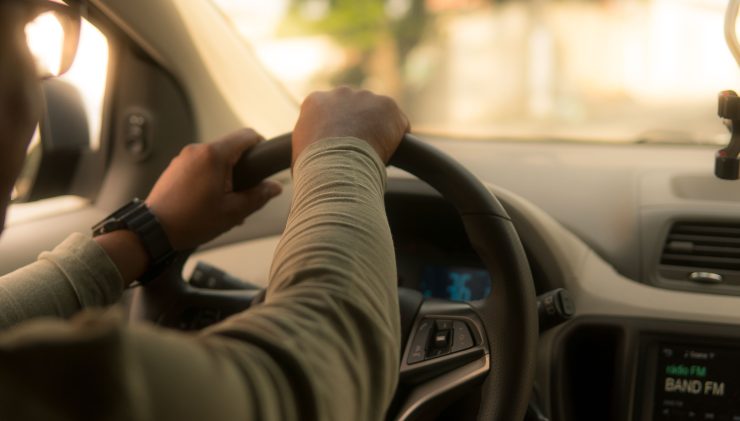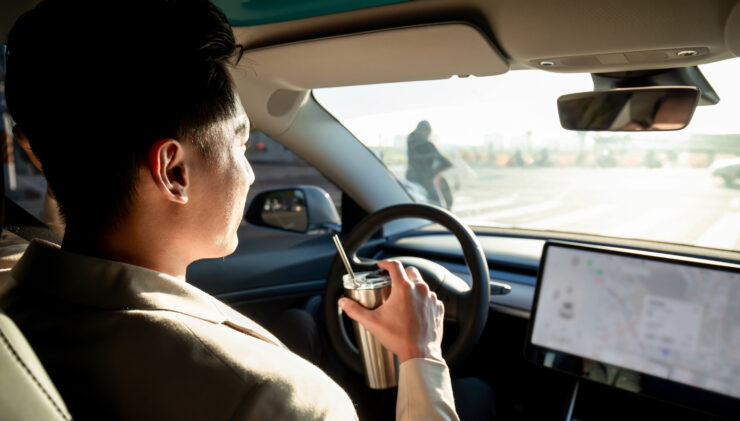 Enrolling in Medicare: Avoid Common Mistakes
Enrolling in Medicare: Avoid Common MistakesPersonal auto insurance policies cover you when you’re using your vehicle for personal reasons. Commercial auto insurance policies cover businesses using their vehicles for commercial reasons. But what happens when you use a personal vehicle for commercial reasons? This can lead to an insurance gap, putting you at risk of a lawsuit for lacking adequate coverage. A hired and non-owned auto (HNOA) endorsement can provide a solution. It’s an addition many residential care facilities should consider.
How a Short Ride Can Go Wrong
Imagine a resident needs to go to a doctor’s appointment. You have a car and don’t mind giving the resident a ride. As it’s just a few miles away, it doesn’t seem like a big deal. Unfortunately, a lot can go wrong in a few miles.
You get distracted and rear-end the car in front of you. That’s bad enough, but then your insurance company finds out you were transporting a resident – essentially acting as a taxi service. Like many personal auto insurance policies, your policy prohibited commercial use. Now both you and the long-term care facility are being sued – and you don’t have the coverage you need from your personal auto policy.
General Liability Doesn’t Cover Car Crashes
You might assume you’re covered for anything that goes wrong because you have commercial general/professional liability insurance. This is important coverage and does provide protection for many situations involving property damage or bodily injury. However, commercial/professional general liability excludes losses and claims involving cars – that’s strictly the domain of auto insurance.
If you want your residential care facility to have coverage for car crashes, you need commercial auto insurance. If you want commercial auto insurance coverage for personal vehicles, you need to secure a hired and non-owned endorsement.
How the Hired and Non-Owned Endorsement Works
A hired and non-owned endorsement extends commercial auto liability coverage to personal vehicles employees use for business purposes.
According to the Insurance Information Institute, you may need hired and non-owned coverage if you use a personal vehicle for work purposes, such as client meetings, business errands, and deliveries.
HNOA coverage is important because personal auto policies often have restrictions against commercial usage. However, this isn’t the only reason to secure HNOA coverage. Most personal auto policies have low liability limits, especially compared to commercial auto policies. If an employee is involved in a crash, the other driver may sue your business – and the size of the lawsuit could easily exceed the personal auto limit. Even if the insurer provides coverage, you’ll be left with significant uncovered costs. HNOA coverage helps fill in this gap.
Driving Residents Is Still Risky
Having an HNOA policy provides your facility with important coverage. For example, if your employees pick up supplies with their personal vehicles, this coverage may come in handy.
However, driving residents is still risky.
A lot can go wrong when you agree to drive residents to appointments. It’s not just the risk of a car crash: a resident could also suffer an accident when getting in or out of the vehicle. Requesting a rideshare is also risky since you haven’t vetted the drivers and may be liable if something goes wrong. Safer options include using a Dial-A-Ride public transportation service or having the resident get a ride from a family member or arranged by a family member.
Check Your HNOA Policy for Restrictions
An HNOA policy can provide valuable protection, but, as with any type of insurance coverage, there may be restrictions.
For example, HNOA policies typically provide liability coverage for claims from third parties. However, as they don’t provide coverage for policyholders’ property, your employees will still need personal auto insurance coverage. Your HNOA policy may require certain underlying limits.
The HNOA policy may only cover certain vehicles and employees. For instance, it may require drivers to have clean driving records, or the policy may even exclude owners. Check your policy for details and, before you let an employee use a personal vehicle for work purposes, make sure you have the necessary coverage.
Since long-term care facilities face many unique risks, having the right insurance coverage is essential. This may include a hired and non-owned auto endorsement as well as other endorsements and policy types. We specialize in providing insurance and risk management for residential long-term care facilities.
Contact us to learn more.



